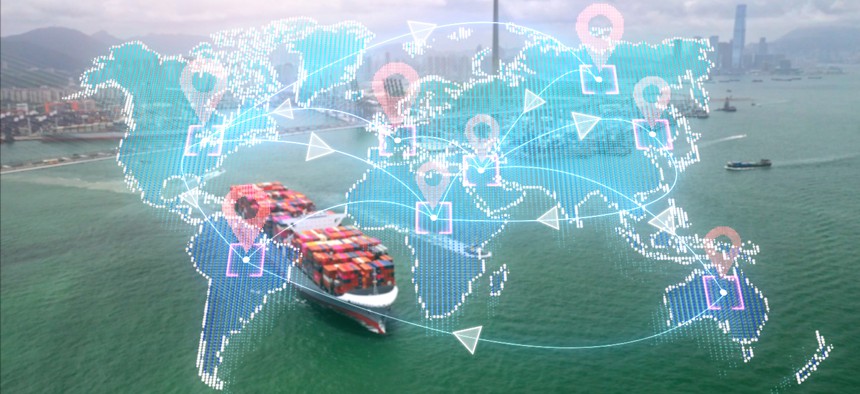Enhanced analytics can make tech export controls more effective, experts say

MR.Cole_Photographer/Getty Images
Export controls designed to limit Beijing’s access to sensitive U.S. technologies can be strengthened further if officials leverage AI and data science to identify gaps and weaknesses.
While export controls have limited the Chinese government’s access to critical technologies that could be used against U.S. national security interests, federal agencies must enhance their analytic capabilities to keep hostile foreign powers from still procuring sensitive tech, experts said during a Senate Banking, Housing and Urban Affairs Committee hearing on Thursday.
“China poses a real and growing threat to our national security,” Chairman Sherrod Brown, D-Ohio, said at the start of the hearing, noting that Beijing “has used advanced technology — much of it stolen from the U.S., some of it sent there through corporate outsourcing — to ramp up its military modernization and build a mass surveillance state that commits deplorable human rights violations, including the detention of millions of Uighurs in Xinjiang.”
But Brown warned that the budget of the Commerce Department’s Bureau of Industry and Security — which oversees most export controls — is “roughly the same as it was a decade ago, despite its increasing workload.” The Biden administration has imposed export controls on China’s access to advanced semiconductors and components and could move to tighten them up even further.
To enhance the bureau’s capabilities, as well as those of other export control agencies, witnesses said that additional funding should be allocated to bring in new resources to enhance their oversight abilities.
Emily Kilcrease — a senior fellow and the director of the energy, economics and security program at the Center for a New American Security — said the government needs to invest in “evaluation and analytic capabilities so that the Department of Commerce is not just relying on industry input but has access to a wide range of unbiased information.”
“We need that capacity, and it needs to be an unbiased kind of independent analytic capability,” she added.
Lindsay Gorman — the senior fellow for emerging technologies at the German Marshall Fund's Alliance for Securing Democracy — said officials should establish a “National Technology Competitiveness Analysis Center” to ensure that “it's not about just slapping a control on one tiny bit of technology, but really trying to limit the capabilities of China into the future.”
“We do not have the tools to understand the downstream economic impacts to United States businesses and to China's own capacity development if we restrict certain critical technologies today,” she said, adding that officials should be “leveraging tools like AI and data science to be tracking those networks of smuggling, sanctions evasion and these creative ways that China can circumvent our export controls.”
Sen. Tim Scott, R-S.C., the panel’s ranking member, said the U.S. “must act strategically” to safeguard the country’s innovative capabilities, including by “working to ensure our sanctions policies on China remain up-to-date and promoting as well as protecting American industry abroad.”
“We can isolate bad actors through our sanctions policies, we can restrict malign investment through our [Committee on Foreign Investment in the United States] process and we can curtail the export of critical goods and services to our enemies,” he said.
Thursday’s hearing was held the day after federal officials testifying before the House Subcommittee on Indo-Pacific highlighted the role that export controls and stronger partnerships with allied nations were having in limiting Beijing’s access to sensitive technologies.






